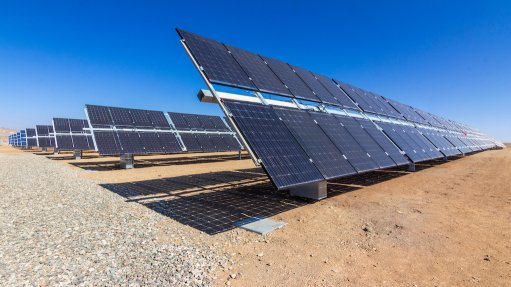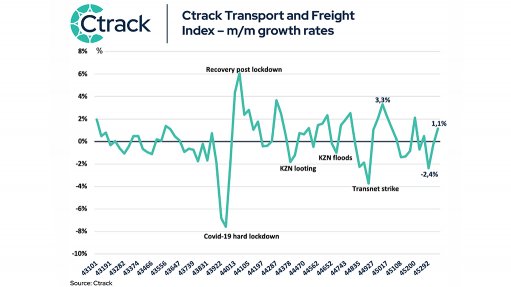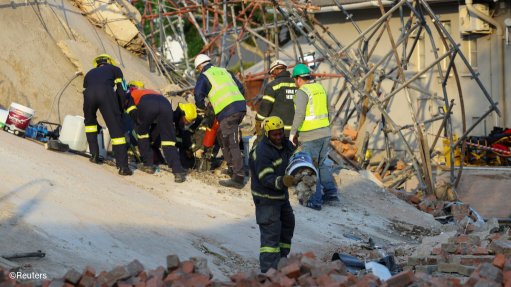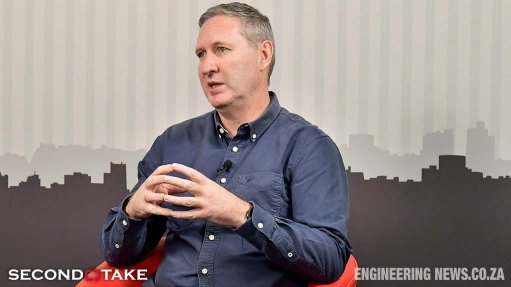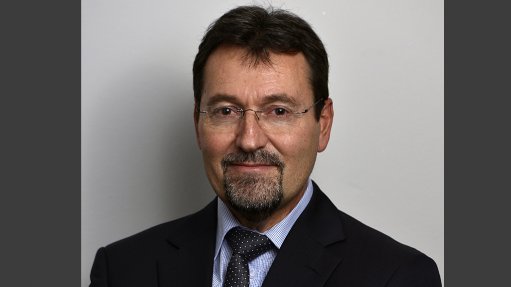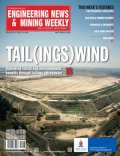No thanks to foreign investment says Home Affairs in English language school saga
This article has been supplied as a media statement and is not written by Creamer Media. It may be available only for a limited time on this website.
By Stefanie de Saude-Darbandi, founder and director of De Saude Attorneys
The new dawn promised by Cyril Ramaphosa's burgeoning presidency risks being scuppered by incompetence and inefficiency by key public-sector representatives. After years of ruinous leadership under the previous administration, Mr Ramaphosa's entry into the highest office in the land marked a turning point not only for the country, but for all its citizens, residents, businesses, NGOs and associations.
In response, the country's business community has shown they are ready to work alongside him and his appointed public officials to attract foreign investment and correct the course of our country's future.
But it is impossible to accomplish this when public officials - specifically those in the Department of Home Affairs - flaunt regulations, refuse engagement, ignore calls and emails, and show a blatant disregard for the wellbeing of the families, individuals and businesses it claims to serve.
The unfolding tragedy in the country’s successful English Foreign Language industry is a stark reminder of prevailing challenges with DHA.
A R25bn industry thwarted
English language teaching is a global industry worth $20-billion annually. South Africa gets a mere fraction of this - R1-billion per year. With the support of destination marketing and assistance from the state, South Africa could capture 10% of the global market and grow the industry to one that generates R25-billion per year.
Local efforts to grow a sustainable and profitable English language teaching industry are stifled by an unhelpful regulatory environment. This is aggravated by poor, irregular or even blatantly wrong application of prevailing laws by state officials.
In 2016, the industry survived a near-ruinous decline in business after DHA's sudden refusal to grant study visas to prospective foreign students. The decision stemmed from the 2014 Immigration Regulations, which dictated that only schools, universities or colleges could obtain study visas for their students. Those institutions teaching short courses – like diving schools, cooking academies, or language schools – could not get study visas.
After nearly crippling the industry, legal proceedings were instituted and DHA, the Department of Higher Education and Training, and EduSA - the representative body for the English language teaching industry in South Africa - came to an agreement: provided EduSA member institutions applied to register as private colleges, the DHA would "permit foreign students to enter South Africa and study at the Applicant’s member institutions" pending the determination of such applications.
An unfolding tragedy
Despite this minor victory, Language Lab’s case illuminates the long road we still need to walk before this industry - which could employ tens of thousands and earn billions of Rands in forex - is no longer strangled by red tape and an unhelpful bureaucracy.
Language Lab specialises in teaching students from Africa, specifically in the aviation industry. Recently, Language Lab secured a major contract with ASECNA, the Agency for the Safety of Air Navigation in Africa and Madagascar which, as it names suggests, regulates air safety in sub-Saharan Africa.
It is expecting 102 ASECNA controllers - in three groups of 34 each - to arrive for EFL training. Each student's fees amount to R46 700, for a total of R4.8-million for the 102 controllers. This income is vital to Language Lab's survival, since the institution has run at a loss following the 2016 visa crisis.
Students applying at the South African embassy in Dakar have been refused visas on the basis that Language Lab is not registered as a private college with the Department of Higher Education and Training. Despite multiple email communications and calls to local DHA staff as well as Department of Higher Education and Training staff over a period of months, as well as to Deputy Director-General: Immigration Services at DHA, Jackie McKay, an answer regarding whether DHA would issue the study visas or not is still not forthcoming.
Facing financial ruin
The ASECNA contract – and the continued survival of Language Lab – is therefore at risk. Urgent court proceedings have been initiated to attempt to salvage the situation and secure the requisite visas for the students, but in all honesty by the time the courts make a determination, the situation may be beyond help.
It is a near certainty, in these circumstances, that the ASECNA controllers will have their visa applications refused by the Dakar Embassy. And even if only the first group of controllers are denied visas, it will most likely lead to the entire contract being cancelled. ASECNA has already considered to cease sending its controllers to South Africa and opt for another African country that is more welcoming to its staff. And Language Lab would most certainly have had to close its doors, leaving its staff and their families without income.
It is high time the DHA is kicked into shape by Mr Ramaphosa’s super-presidency, or all his efforts to encourage foreign investment will likely come to naught.
Comments
Press Office
Announcements
What's On
Subscribe to improve your user experience...
Option 1 (equivalent of R125 a month):
Receive a weekly copy of Creamer Media's Engineering News & Mining Weekly magazine
(print copy for those in South Africa and e-magazine for those outside of South Africa)
Receive daily email newsletters
Access to full search results
Access archive of magazine back copies
Access to Projects in Progress
Access to ONE Research Report of your choice in PDF format
Option 2 (equivalent of R375 a month):
All benefits from Option 1
PLUS
Access to Creamer Media's Research Channel Africa for ALL Research Reports, in PDF format, on various industrial and mining sectors
including Electricity; Water; Energy Transition; Hydrogen; Roads, Rail and Ports; Coal; Gold; Platinum; Battery Metals; etc.
Already a subscriber?
Forgotten your password?
Receive weekly copy of Creamer Media's Engineering News & Mining Weekly magazine (print copy for those in South Africa and e-magazine for those outside of South Africa)
➕
Recieve daily email newsletters
➕
Access to full search results
➕
Access archive of magazine back copies
➕
Access to Projects in Progress
➕
Access to ONE Research Report of your choice in PDF format
RESEARCH CHANNEL AFRICA
R4500 (equivalent of R375 a month)
SUBSCRIBEAll benefits from Option 1
➕
Access to Creamer Media's Research Channel Africa for ALL Research Reports on various industrial and mining sectors, in PDF format, including on:
Electricity
➕
Water
➕
Energy Transition
➕
Hydrogen
➕
Roads, Rail and Ports
➕
Coal
➕
Gold
➕
Platinum
➕
Battery Metals
➕
etc.
Receive all benefits from Option 1 or Option 2 delivered to numerous people at your company
➕
Multiple User names and Passwords for simultaneous log-ins
➕
Intranet integration access to all in your organisation







